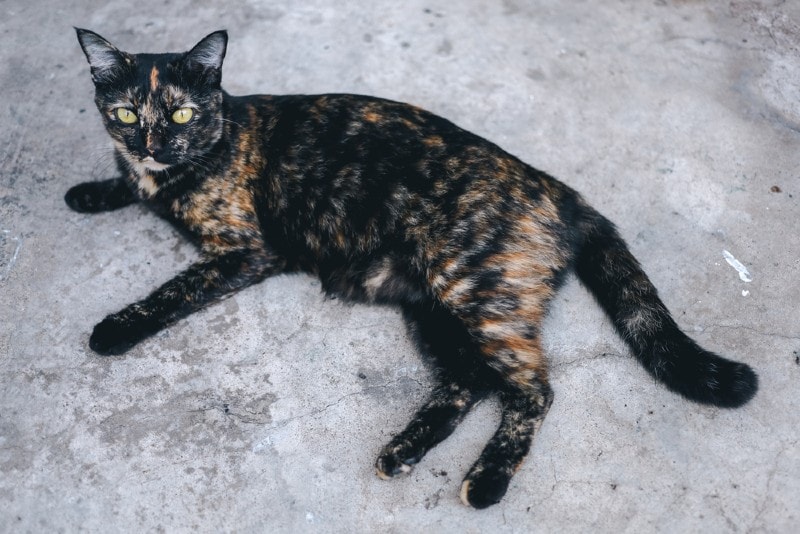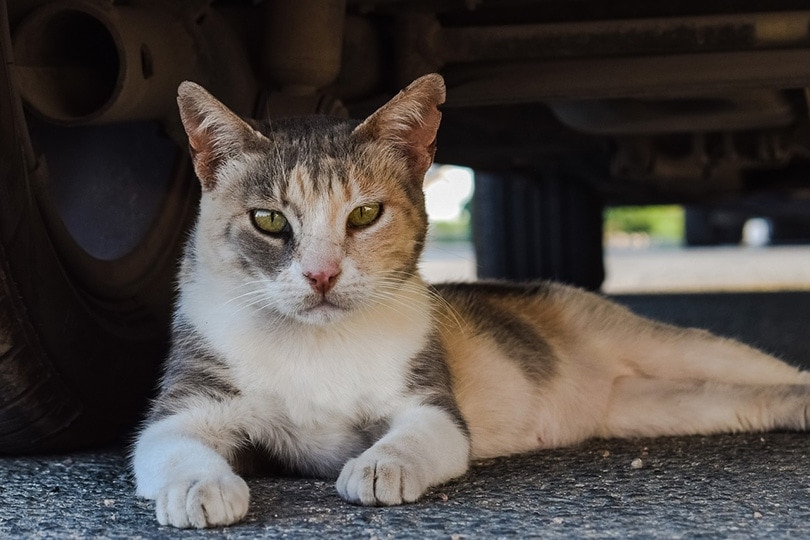Boarding for Cats: Pros & Cons Explained
Updated on
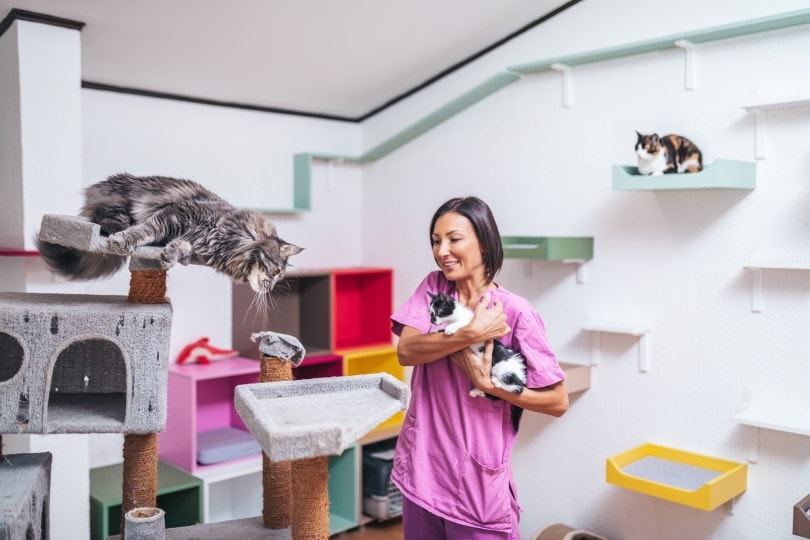
If you’re going on a trip without your cat, you generally have three options: board them at a facility, leave them home alone, or have someone check up on them occasionally. Each of these options has its own pros and cons. Sometimes, one option may be completely impossible depending on the owner and cat. (For instance, cats with medication cannot be left at home alone.)
You’re probably considering which option is best for your cat. While cat boarding facilities are rarer than those for dogs, they can be a great option for many felines. However, they aren’t for everyone.
Here are some pros and cons of boarding your cat.
The 5 Pros of Boarding for Cats
1. Constant (or Near-Constant) Supervision
When you board your cat, you can rest assured that someone is watching them just about all the time. This round-the-clock care is why many people choose a boarding facility. If you’re worried that your feline may not do well when left alone, boarding provides an alternative.
In many cases, boarding facilities have cameras so that someone can watch the cats even when no one is in the room.
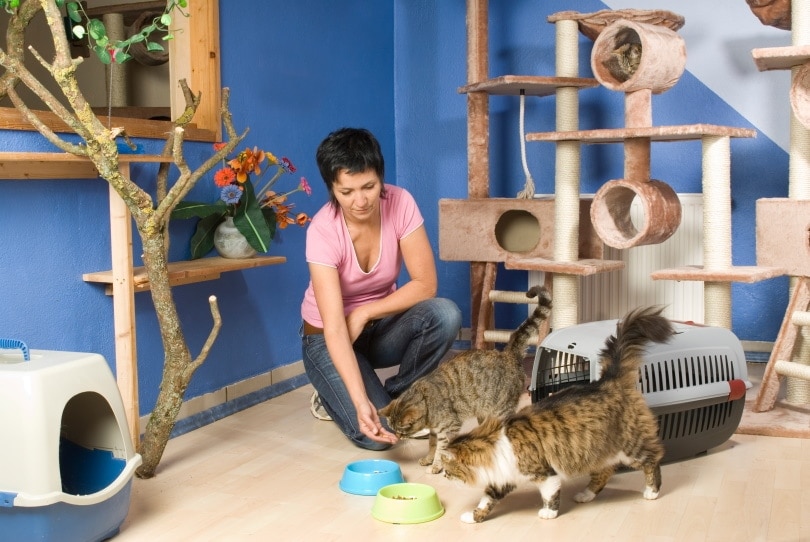
2. Professional Care
Those who work at boarding facilities spend a lot of time caring for cats. Therefore, they can offer a level of care that may not be available otherwise. Often, they know how to deal with basic health issues and administer medication. If your cat has medical issues, this benefit may make it easy to choose boarding for them.
3. Socialization
If your cat is comfortable around other cats, then boarding has the added bonus of providing playmates. Even those that don’t like cats but get along with people may enjoy the extra playtime and attention from their human caregivers.
Of course, this differs a lot from cat to cat.

4. Safety
Boarding facilities are made to be safe. They have proper ventilation, temperature control, sanitation, and security systems. If something happens (such as a power outage), you can rest assured that someone is there and handling it. You don’t have to worry about malfunctions at home affecting your feline.
These facilities can also save your cat if they have a medical emergency. Because they are being supervised, you don’t have to worry about them not getting the help they need if something happens.
5. Routine
Boarding facilities can help provide your cat with the same routine that they get at home. They can get their food at about the same time and keep to their usual routine. In this way, your cat may be less stressed than other options, as cats are creatures of routine.

The 4 Cons of Boarding for Cats
1. Stress
Many cats find staying away from home stressful. If your cat isn’t well socialized, staying somewhere else may cause more problems than it avoids. Cats tend to be more prone to stress when boarding than dogs are, which can cause a host of problems.
If possible, it helps to get your cat used to the boarding facility ahead of time, preferably by boarding them at an early age. However, this isn’t always possible (and if your cat is already older, it’s a bit too late for that).
2. Extra Health Care
Boarding facilities are hot spots for diseases. Therefore, your cat usually has to have extra vaccinations when being boarded. Many facilities require this, and it is usually the best option for your feline, even if they don’t.
You may have to get your cat extra care afterward, too. Cats may get diseases and parasites that they cannot get vaccinated against. For instance, many felines may end up with fleas. These parasites may need to be treated by your vet if your cat isn’t already on preventative medication.
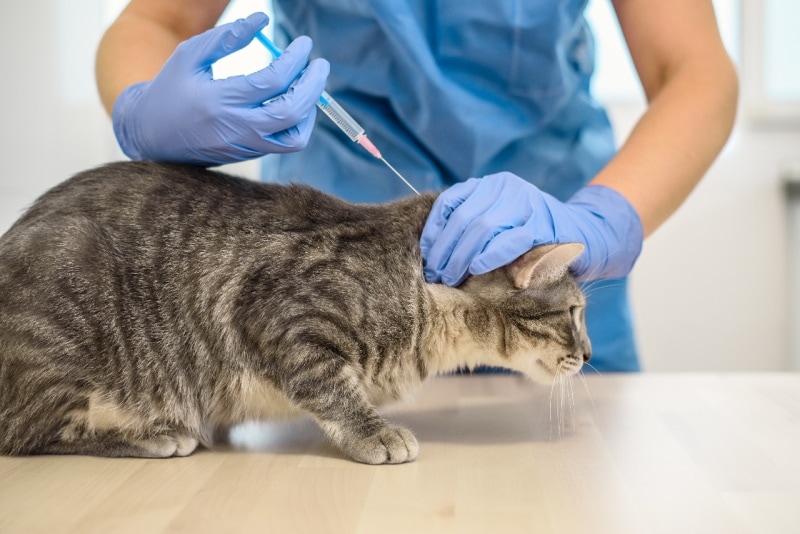
3. Cost
Boarding can be expensive! You’ll often pay at least a few hundred dollars for your feline, though the cost will depend on the facility and length of the stay. You can compare different boarding facilities near you for potential savings.
Extra services may cost more, such as extra time in the yard or extra treats. You may consider purchasing these for your cat’s enjoyment while you’re gone, but your costs may go up because of them.
4. Not all Facilities are Equal
Some facilities are great places to board your cat. Others? Not so much. It’s important to do your research and visit the facility before boarding your cat. Ensure it’s a comfortable, clean place where you can see your cat enjoying their time. Cleanliness and safety should be paramount.
You may have to pay a bit extra for a better facility. However, it’s always better to pay a bit more than leave your cat at a subpar facility where they may not get the care they need.
Final Thoughts
Boarding your cat is great if your feline needs regular care, has medication they must take, or gets along well with others. Cats that benefit most from boarding will be those with health conditions or high social needs. However, other cats may benefit from boarding, too. Just having constant care can be beneficial for many felines.
You may also want to consider some alternatives to boarding your cat, such as hiring a cat sitter, asking a friend or family member to look after your cat, or taking your cat with you if possible.
See also:
- 15 Dream Jobs for Cat Lovers: Choose the Perfect Career
- Cat Daycare: Is There Such a Thing? Facts & FAQ
Featured Image Credit: hedgehog94, Shutterstock




